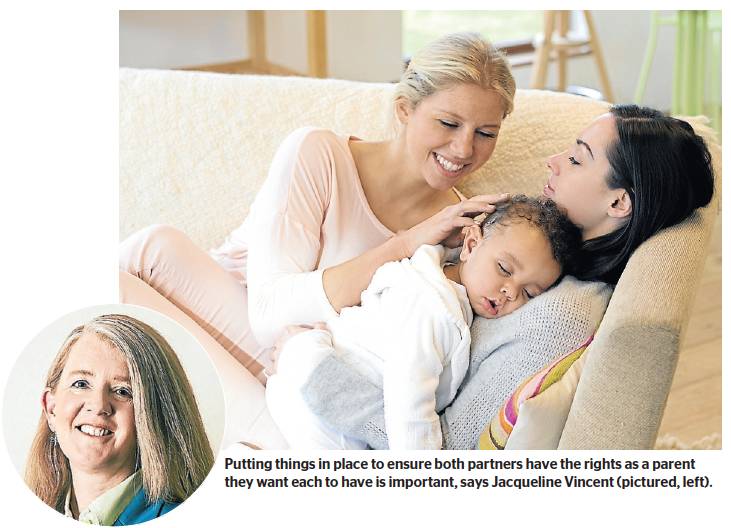
Latest
Same-sex Family Law | De-facto Relationships
Know and Protect the Extent of Your Rights – Same-sex Family Law
Families take many forms and in March, 2009, Australian federal law was changed to recognise that same-sex couples and their children are entitled to receive the same level of protection under the law as heterosexual couples and their families.
When entering into a same-sex relationship, whether or not a couple chooses to marry, and especially if children are to be part of the future, it is prudent to seek legal advice from a lawyer who practices regularly in the area of family law.
What are you entitled to?
Should a couple decide to separate each should be aware of what they are entitled to and what their obligations are, says Jacqueline Vincent, managing director at Sydney’s Watts McCray Lawyers.
‘‘It’s important that each partner knows where they stand on key issues such as parenting and property, maintenance and child support,’’ she says.
‘‘As with any other de facto relationship, starting out it may be wise, for instance, to consider a pre-nup, known legally as a Financial Agreement, in regards to property and other assets.
‘‘Also, it is important to understand the law concerning who is a parent at law and the rights and obligations which go with being a legal parent, as sometimes the expectations people have and the reality of the law are not quite the same.
‘‘This may extend to putting things in place to ensure both partners have the rights as a parent they want each to have, before and after any separation.
Having a clear understanding of each other’s rights – and having steps in place to ensure they are upheld – can ameliorate the emotional turmoil and logistical struggles during a separation or divorce, especially where children are involved.’’
Australian Family Law
Australian law allows those leaving a same-sex relationship, like those leaving a de facto relationship, to pursue property and financial settlements provided certain eligibility requirements are met and they can prove they were together on a genuine domestic basis.
Once these requirements are met, laws in relation to financial and property settlements are very similar to those of married couples. And of course, since the definition of marriage in Australia was changed in law in December, 2017, same-sex couples have been able to marry and have the same family law rights as heterosexual married couples. Since then, same-sex couples, whether married in Australia or overseas, have been able to divorce in Australia.
In reality, however, having these legal entitlements recognised is not always so straightforward in a day-to-day context. For example, a study undertaken last year by a Melbourne university found there was a need for greater ‘‘separation equality’’ as social attitudes had not kept pace with legal changes.
The study found some same-sex parents were still experiencing not-necessarily welcoming environments when they went to service providers, adding an extra layer of complexity to separations.
‘‘This is another area where seeking sound family law advice is very useful, as the law in this area is still evolving. Also, everyone’s family circumstances are slightly different,’’ says Vincent.
‘‘For instance, while a same-sex couple might not see any distinctions in their role as parents, others in their lives such as family, friends and even service providers may assume the biological parent will have more power when negotiating custody arrangements.
‘‘Battling such misconceptions can add an extra dimension of fear and stress to people who are already feeling very vulnerable.’’
‘It’s important that each partner knows where they stand on key issues.’
Jacqueline Vincent
If you are in a same-sex, or de-facto relationship and have any further questions about your situation, please get in contact with us today for a confidential discussion.


